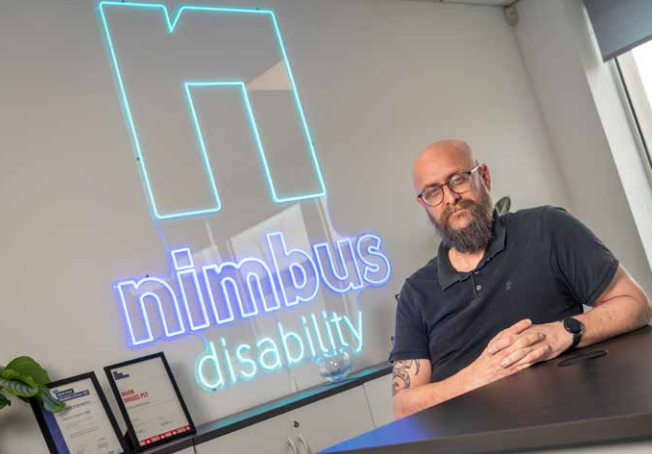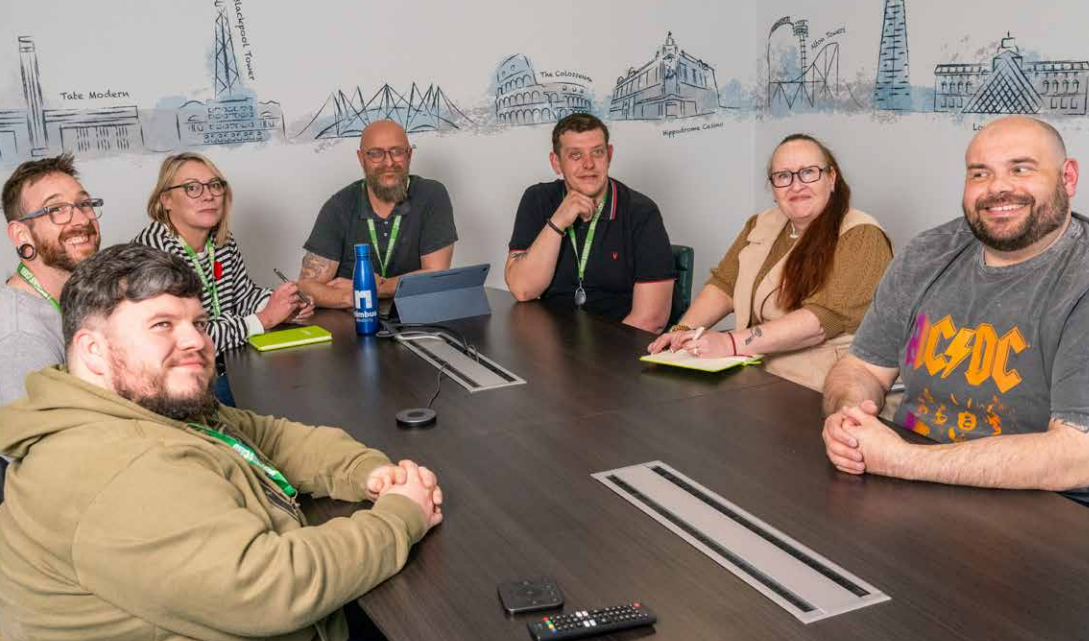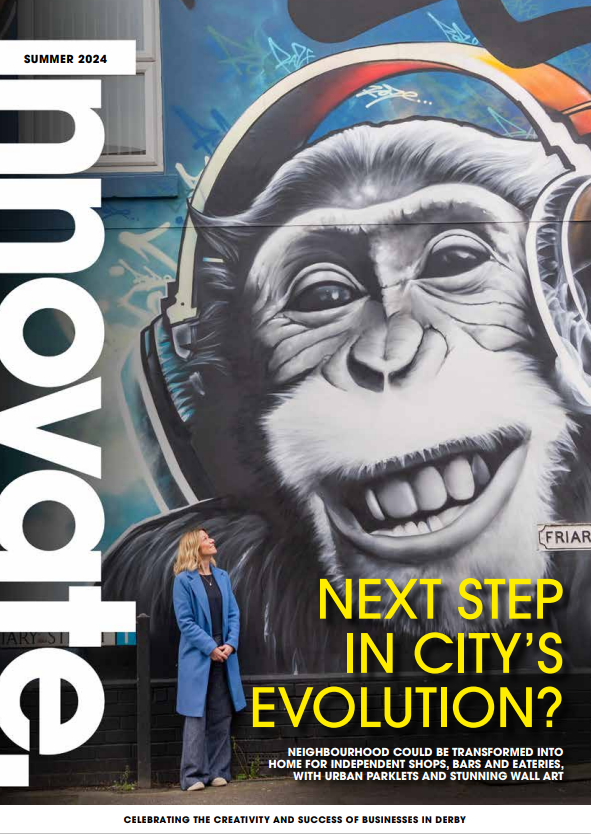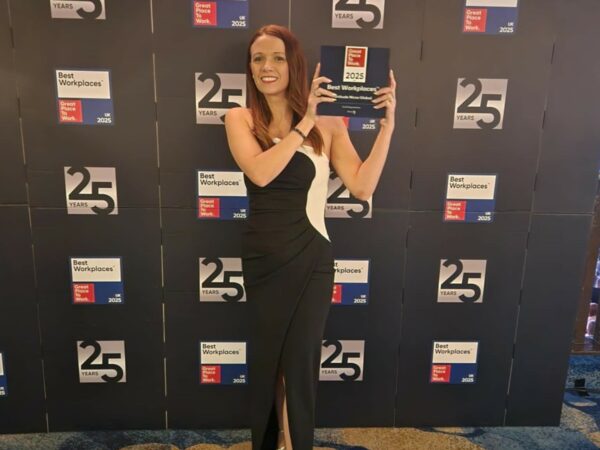Latest News | 24 July 2024
How Nimbus is helping disabled people access all areas

In the latest edition of Marketing Derby’s Innovate Magazine, we meet the team at Nimbus Disability – the social enterprise behind an innovation that has opened doors for disabled people wanting to visit major attractions.
Nimbus is the organisation behind the Access Card, which in 2022 was recognised with a Queen’s Award for Innovation.
The card is held by people in the UK and beyond who register their accessibility requirements.

Powered by NOS (Nimbus Operating System), which is Nimbus’ bespoke software, the Access Card system translates its holder’s disability/impairment/access requirements into symbols highlighting the barriers they face.
When booking tickets online, NOS informs providers quickly and discreetly about the access requirements that individuals need without sharing further information about them with the venue.
This has vastly improved access for disabled people who previously had to provide benefit entitlement letters or invasive amounts of personal information each time they booked tickets for festivals, cinemas, sports matches and more.
Today, the Access Card is already widely recognised by operators such as Alton Towers, Drayton Manor, Butlins, OVO Arena Wembley, Radio One Big Weekend, the O2 Arena, NEC and Glastonbury Festival.
And it has proven a huge hit with users, helping around 400,000 disabled people attend festivals, concerts, theatre performances, theme parks and sporting events at 1,700 venues across the UK and beyond.

Innovate catches up with Nimbus Disability’s managing director Martin Austin, whose frustrating experience attending a music festival in the late 1990s got him thinking about a solution, which could make life so much easier for disabled people like himself.
But Martin reveals that the Access Card’s “spiritual home” is Download – the Castle Donington rock festival where, in 2010, the idea was conceived.
He had been discussing with the organisers their challenges around processing requests from disabled people who had access requirements, such as a need to avoid queuing or to be accompanied by an essential companion.
Martin told Innovate: “For me, as a customer, every time I went somewhere I had to fill in a form, send off my evidence, wait for someone that didn’t know what they were looking at to examine it, to then come back weeks later and say, yes, I could have the ticket.
“From the business’s point of view, they didn’t want to be doing that. They didn’t know what evidence they were looking at, the data protection policies they had were not geared towards taking loads of sensitive information and processing it.
“I thought about all the things Download would need to know about a customer to be able to provide them with the service they needed.
“I suggested they sub-contract the decision-making process to us, we would ask for photo ID as a part of the process and then produce a Download Access Card.
“I’ve still got the bit of paper I sketched the first card on. It doesn’t look that different to the one we still have today.”

At that point, Download decided not to continue with the card, so Nimbus launched its own – and so began the long slog of trying to persuade venues to accept it.
That work is now reaping dividends – and for many users, it has helped unlock access to a host of new opportunities.
Martin told Innovate: “Just because you are disabled, it doesn’t mean you know anything about disability. It doesn’t mean you know what kind of infrastructure is out there. You don’t get a handbook.”
To read the feature in full visit https://heyzine.com/flip-book/ea5784cecc.html#page/50 .


